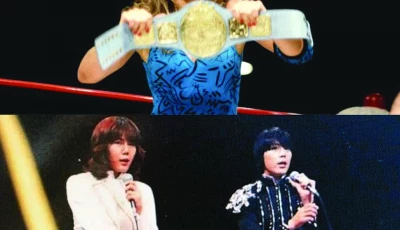Women’s wrestling has experienced a remarkable evolution, transitioning from a niche attraction to a mainstream phenomenon. This journey is intertwined with the “Rock ‘n’ Wrestling Connection” of the 1980s, a pivotal era that blended professional wrestling with popular music culture, propelling the sport—and its female athletes—into the limelight.
The Rock ‘n’ Wrestling Connection
In the mid-1980s, the World Wrestling Federation (WWF) sought to expand its audience by merging wrestling with mainstream entertainment. This initiative, known as the “Rock ‘n’ Wrestling Connection,” was spearheaded by collaborations with music industry figures. A notable example was pop star Cyndi Lauper’s involvement, where she appeared alongside WWF manager Lou Albano in her “Girls Just Want to Have Fun” music video. This partnership culminated in events like “The Brawl to End It All,” broadcast on MTV in 1984, featuring Wendi Richter challenging The Fabulous Moolah for the WWF Women’s Championship. Richter’s victory not only ended Moolah’s 28-year title reign but also marked a significant moment in elevating women’s wrestling.
Mainstream Integration and Cultural Impact
The Rock ‘n’ Wrestling era was instrumental in integrating wrestling into mainstream culture. Female wrestlers gained unprecedented visibility, challenging traditional gender roles and inspiring future generations. This period demonstrated that women’s wrestling could captivate broad audiences, paving the way for its acceptance as a legitimate sport.
Contemporary Resurgence and Growth
In recent years, women’s wrestling has experienced a resurgence, becoming one of the fastest-growing sports in the United States. High school programs have seen a significant increase in female participation, with over 50,000 women competing in their own divisions. This growth reflects broader societal shifts towards gender equality in sports and has been bolstered by media representation that portrays female wrestlers as skilled athletes.
Modern Milestones and Representation
Promotions like WWE, AEW, and Impact Wrestling have played crucial roles in elevating women’s wrestling. They have introduced women’s championships and all-female pay-per-view events, showcasing the talent and athleticism of female wrestlers. Stars like Rhea Ripley have gained international acclaim, with Ripley’s punk-goth persona resonating with a diverse fan base and exemplifying the sport’s evolving image.
In summary, the fusion of rock ‘n’ roll and wrestling in the 1980s was a catalyst for women’s wrestling’s ascent into mainstream culture. This foundation has allowed the sport to flourish, breaking stereotypes and inspiring a new generation of athletes and fans.








